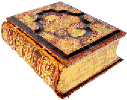Having set up a figure of the heavens, the first thing to observe is the rising sign, and the student should turn to that part or the book in which its effects are described. He should then notice whether the sign is in any way complicated by the presence of planets in it, and again he should turn to a corresponding portion of the book, if this is so. He should then look at the ruler of that sign, notice its position in the zodiac and also in what house it is situated, and he should see whether this ruler is in any way complicated by aspects. In every case he will find a part of the book in which these conditions are described. He must then repeat this operation with every sign in turn.
Having gone through all this preliminary work, he will be well on the way to form a judgment. He will be wise to regard all these as so many details, like a box of bricks from which he can build a house. Some factors will strike him as extremely important; others as less so. The more he considers the figure, the more salient points will leap into the focus of his imagination, and by setting his intuition at work and employing his creative faculties to eke out his judicial, he will obtain a mental picture of the horoscope as a whole, which, though reposing securely upon the foundation of the facts of the planetary positions, is something more than the sum of those facts. To draw an analogy from painting itself, a masterpiece by Velasquez is, if you analyse it, a set of patches of color, arranged in a peculiar manner, but to say this is not in any way to describe the picture. An astrologer who says that because certain positions and aspects exist, such and such a result must follow, is not a good astrologer, but a bad astrologer.
The more he concentrates upon the bare material of his calculations, the worse his judgment is likely to be. Indefatigability is a good servant hut a bad master.
The expert astrologer takes infinite pains with his figure; he endeavors to fulfill Carlyle’s absurd definition of a genius, but having assimilated the whole horoscope, he forgets it or only refers to it casually to confirm the general impression which it makes upon his mind. The real judgment is obtained by rising to the height of the situation, having absorbed everything that the figure has to teach. The astrologer places it in the alembic of his imagination. The full current of his genius overleaps the dam of his data and sweeps it away. What he attains is not merely reasonable – it is reason informed and illuminated by his lofty intelligence.
It is for this reason that the plodding, painstaking astrologer is as useless as the same kind of college professor. There is no branch of human activity in which rules are of any real importance. It is the privilege of every great creative artist to break the rules. If Wagner had followed out the academic laws of harmony, music would still be in the morrass where the dancing-master musicians of Mendelssohn’s era would have left it. If Whistler had attended to the platitudes of Ruskin, Queen Victoria would still be on the throne of England. One cannot judge poetry by counting the syllables on one’s fingers, and the wooden melodies of Dryden and Longfellow are not more, but less musical than the unregulated outburst of Whitman.
The astrologer claims to be a creative artist as much as the poet, painter, or musician; and he will never attain to real greatness in his profess ion if he allows himself to be bound down too tightly by tradition, or even by the calculations of his own experience.
We are all human, but we are only worthy of the name of human, insofar as we are divine. Inspiration, and nothing else, distinguishes humanity from the beasts that perish.
 AstroLibrary 🔎
AstroLibrary 🔎